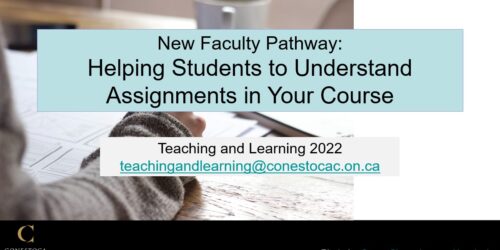Supporting Privacy Rights of People with Disabilities
It is important to periodically refresh our understanding of the legislation that guides accessibility and how it impacts our work in education. This tip shares some valuable links for learning more about how to support the members of the Conestoga community who have disabilities.
Policy on Accessible Education
A brief overview of accessibility can be found at Accessibility at Conestoga. Both the College and each individual who works in a public institution are held to a high standard when it comes to providing accessible educational opportunities and workplaces for individuals with disabilities.
The Accessibility for Ontarians with Disabilities Act (AODA) outlines requirements for educational institutions. Ontario Human Rights (OHR) also outlines a Policy on accessible education for students with disabilities. We are all expected to do our part to support students and employees with disabilities.
More on Protecting Rights and Ending Stigma
Throughout history, individuals with disabilities have faced stigma and been challenged at accessing education and finding subsequent employment. OHR offers a report on Ending disability stereotypes and stigma.
Part of ending this stigma is for individuals with disabilities to make their own determination about what they wish to share with others and when they wish to share. The 2016 York University lawsuit won by a student confirmed that individuals do not have to disclose details about disabilities, but also included discussions around how employees and students can share in an effort to create an environment of support where disabilities are increasingly less stigmatized. Another article from the Harvard Business Review looks at disclosure/non-disclosure: Why people hide their disabilities at work.
Our Shared Responsibility
You and other faculty members together share an important responsibility to respect the rights of students and other employees to disclose or not disclose to whom they wish to and when they wish to. The fact that a colleague has disclosed to you or to others is not permission to pass that information along or mention it again. The same goes for any information about a disability shared by a student.
We can all work together to ensure accessible education and workplaces for all and to decrease the stigma and job barriers that individuals with disabilities often face.
At Teaching & Learning we are eager to support you in supporting students and to help you figure out ways to deliver learning in accessible ways. See our post on Universal Design for Learning (UDL), and contact by email at teachingandlearning@conestogac.on.ca to collaborate with a consultant.



